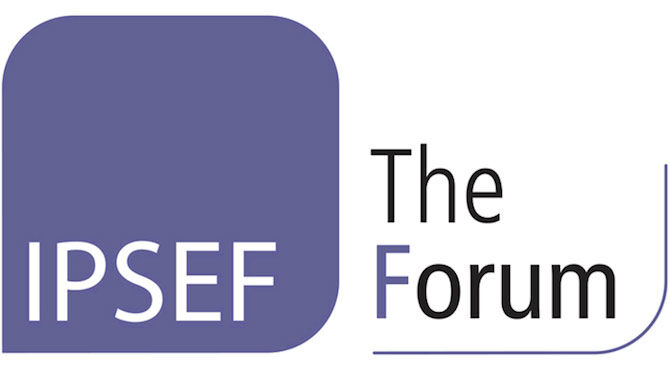The
International Private Schools Education Forum (IPSEF) held a conference in Kuala Lumpur, Malaysia, at the end of March. This is a well-established event with a reputation for examining current challenges in international education and setting the scene for future investors in this enormous growth market.
A number of the conference’s themes were relevant to employers looking for premium schools for international assignees and expatriates in Southeast Asia.
The huge rise in numbers of international schools there is largely to support local demand for high-quality education leading to higher-education places and career aspirations, rather than to cater for demand from expatriate populations.
Building talent pipelines
With the trend towards localisation, the growth of a wider selection of schools for employees moving to a new region offers more choice, and often more affordable fees. In addition, the more international organisations work with their local communities and support the progress and development of new schools and high-quality education, the more they will benefit from a pool of young talent to support economic growth.
In a highly competitive global environment the race is on to secure the best young minds for the future.

The conference was addressed by Paul Rennie, Deputy High Commissioner at the British High Commission in Malaysia. As the father of a six-year-old, he spoke powerfully about the importance of education today and the shared aspirations of parents from around the world, but particularly those in Malaysia, which has experienced tremendous growth in International schools.
Mr Rennie said, “One of the greatest challenges faced by schools today is to equip children with knowledge and skills that are relevant to future jobs, many of which don’t even exist currently.
“It is therefore important for forums like IPSEF to bring together stakeholders across the education sector, to chart the learning journey for the next generation. The strong UK delegation at this forum demonstrates the UK’s commitment in this regard.
“The UK education model is great, because it offers the best of tradition as well as modernity. This is why there is an increasing demand for UK schools and colleges in Malaysia. We are proud to be part of the delivery solution to Malaysia’s aspiration as an education hub in the region.
Growth of international schools
A report published by ISC Research to coincide with the conference highlighted the enormous growth of international schools in East and Southeast Asia.
Southeast Asia dominated the list of countries with the greatest number of premium English-medium international schools in the greater East Asia region, according to the report.
Indonesia was in third position with 190 international schools, followed by Thailand with 181, and Hong Kong with 177. Malaysia was close behind with 170. Next was Cambodia with 114, followed by Vietnam with 111, and Singapore with 110.
China, with 567 international schools, still dominated the list of countries in the greater East Asia region. It had more than twice as many international schools as Japan, which came second with 257.
IPSEF co-founder Rhona Greenhill said that the number of international schools in East Asia had grown from 828 in 2013 to 1,125 this year. Southeast Asia, which had 725 such schools in 2013, now has 1,008.
Addressing teacher shortages
A recurrent theme at the conference was the challenge of finding enough teachers to keep up with the demand and the huge growth in schools. International schools are facing the same challenges as other employers in competing for the best and the brightest talent, and retaining it.
Nigel Austen, of
Maple Leaf International School Chongquing, in China, affirmed the importance of taking care of new teacher recruits, settling them in, and helping them to build support networks and overcome the inevitable culture shock which is part of the change and transition that expatriate teachers will experience.
Attracting teachers is important, but the importance of retention must not be overlooked if schools are to flourish. This is even more important in remote locations. We would be delighted to share with schools tips and advice from experienced international HR and global mobility practitioners about how they recruit and retain – and, of course, our Global Mobility Toolkit provides a wealth of practical support information.
Maryanna Abdoof, of
Parthenon-EY, which offers strategic advice in the education sector, explained how schools were staying competitive through innovation, despite the slowdown and oversupply in some regions. Panthenon-EY’s recent report on the sector, Driving Grades, Driving Growth, reveals the strong correlation between the proportion of a country’s population educated to degree level and its economic growth. The growth of schools is obviously the stepping stone in the process.
Exploring areas of risk
The conference also highlighted areas of concern for relocating parents and employers, such as child protection and the strides that have been made to keep children safe and secure. Colin Bell, CEO of the
Council of British International Schools (COBIS), contributed to the panel discussion flagging up his organisation’s initiatives and support for member schools.
Diane Jacoutot, of
Edvectus Recruitment, was able to share the teacher-screening process and advice on safer recruitment. However, with thousands of schools opening, it was inevitable that each would be at a different point in its child protection policy. There was also risk from cyber attack and terrorism, not to mention child neglect and bullying, which are all on the radar of schools, as well as employers and parents choosing schools.
There were some inspiring speakers, such as Dr Goh Chee Leong, who was seeing a broadening view of what Asian parents wanted for their children. He felt there was a realisation that defining success by purely by academic achievement and a good job was not enough.
As a psychologist, he saw a need to define success in a different way. The
HELP International School had grown from 300 to 1,000 pupils within nine months of opening, thanks to its approach of experiencing life in its fullness. Children were encouraged to learn to enjoy and embrace life now, rather than to wait to enjoy it in the future.
Against a background of the volatile, uncertain, complex, ambiguous (VUCA) world, the school’s eight areas of development were designed to educate children to be resilient, with mental agility and social intelligence, language prowess, and problem-solving ability, to provide leadership skills for the future.
Embracing change
Reflections on changes in education from John Gwyn Jones, an experienced international headteacher who is now managing director of
Panyathip International School, Loa, reflected on how international education had shifted from not-for-profit to huge investment in for-profit or company schools, and the implications. Still excited by education development in Southeast Asia, he looked forward to the next wave of change.
David Tonque, headmaster of
Brighton College International School Bangkok, shared his thoughts of starting up a new school in a highly competitive environment.
Perspectives on the opportunities and challenges of setting up and running a new school in the Southeast Asian market were returned to in a lively panel discussion moderated by Anshul Arora, of
Edvance Group. We will revisit the themes explored in future coverage of this important region.
The case study of the
CURRO South African school group revealed how quality education could be delivered with no frills, and would have been heartening for regions with low budgets and high educational aspirations. Employers based in South Africa will be encouraged by the educational range the CURRO group offers at different fee levels.
A complex future
The conference reflected that even in today’s highly pressured environment and in a part of the world where pupils could be put under a lot of stress to achieve academic excellence, a successful school offered more than exam results.
Andrew Dalton, principal and director of education at the
International School @ Park City and chairman of the
Association of International Malaysian Schools (AIMS), chaired the second day of the conference. He said, “Education is moving beyond the transactional approach of sitting and passing examinations to instilling a love for learning.
“The future we are preparing children for is undoubtedly a very complex one, and textbook knowledge is no longer enough to get them through. When our graduating students eventually apply for jobs, employers are no longer looking for the person with the highest examination grades, instead, they will value skills like teamwork, critical thinking and creativity, and traits such as risk-taking, resilience and empathy.”
The conference was followed by a day visiting schools. It was a privilege and an inspiration to see how three new schools were growing and flourishing in Malaysia. We will look forward to sharing insights from
St Joseph’s Institution International School Malaysia, the
British International School Kuala Lumpur, and
Epsom College in Malaysia on the website in a special digital issue to be published later this month.
We look forward to welcoming international schools and educationalists to the
Relocate Awards Gala Dinner on 11 May. We also invite them to join us for a study tour in London, to engage with our community of global employers, HR professionals and relocation specialists. For further information contact
ali@relocatemagazine.comFor more coverage of education in Asia, see the
Spring 2017 issue of Relocate magazine.

 6 April 2017
6 April 2017 The conference was addressed by Paul Rennie, Deputy High Commissioner at the British High Commission in Malaysia. As the father of a six-year-old, he spoke powerfully about the importance of education today and the shared aspirations of parents from around the world, but particularly those in Malaysia, which has experienced tremendous growth in International schools.Mr Rennie said, “One of the greatest challenges faced by schools today is to equip children with knowledge and skills that are relevant to future jobs, many of which don’t even exist currently.“It is therefore important for forums like IPSEF to bring together stakeholders across the education sector, to chart the learning journey for the next generation. The strong UK delegation at this forum demonstrates the UK’s commitment in this regard.
The conference was addressed by Paul Rennie, Deputy High Commissioner at the British High Commission in Malaysia. As the father of a six-year-old, he spoke powerfully about the importance of education today and the shared aspirations of parents from around the world, but particularly those in Malaysia, which has experienced tremendous growth in International schools.Mr Rennie said, “One of the greatest challenges faced by schools today is to equip children with knowledge and skills that are relevant to future jobs, many of which don’t even exist currently.“It is therefore important for forums like IPSEF to bring together stakeholders across the education sector, to chart the learning journey for the next generation. The strong UK delegation at this forum demonstrates the UK’s commitment in this regard. 



























